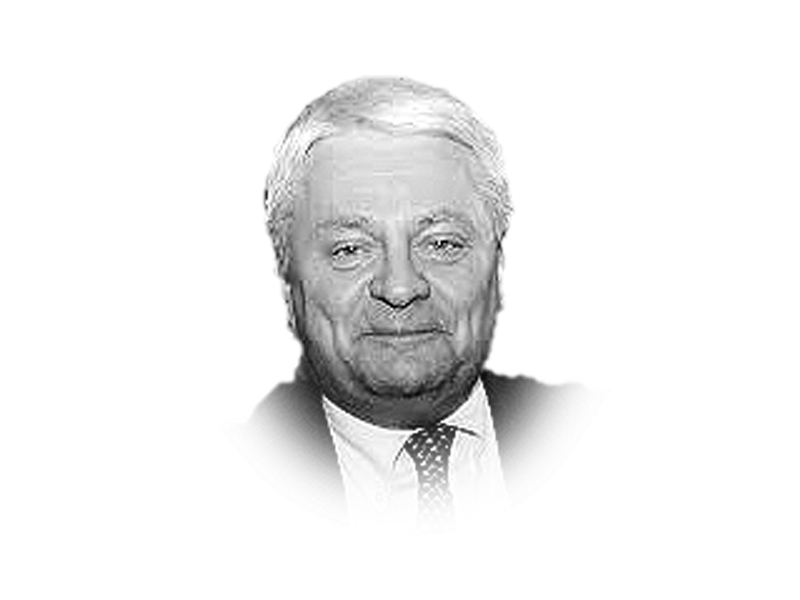
Modern peacekeepers operate in much more complex terrain. They help bring peace to lands brutally affected by conflicts, often internal, and where agreements are fragile. Non-state actors, such as organised criminal groups, present additional challenges to peace.
To meet these challenges, UN peacekeeping has developed a multidimensional approach that brings together military, police and civilians working in various areas, including rule of law, human rights and protection of civilians. But, as we prepare to meet new demands, peacekeeping will come face to face with two fundamental truths.
First, UN peacekeeping cannot substitute for a political agreement. Peacekeeping interventions must be underpinned in a clear political frame.
Second, UN peacekeeping needs more and better tools and skills. We must ensure our missions are given the resources they need to ensure full awareness of evolving situations and to respond appropriately.
In eastern Democratic Republic of Congo (DRC), where armed groups continue to threaten millions of civilians, we are responding with a new Force Intervention Brigade and the use of unarmed, unmanned aerial vehicles to monitor the movement of armed groups that pose a threat to civilians. These tools will give our peacekeeping mission a tactical edge, rapid mobility and stronger deterrent effect.
These new approaches are raising concerns that UN peacekeeping is tilting towards war fighting. This is not the case. Our Security Council mandate is clear: the use of force by our peacekeepers in the DRC is the exception, not the rule in UN peacekeeping.
The changing nature of armed conflicts demands changes in the capabilities of UN peacekeeping. Increasingly, UN peacekeepers operate in high-risk environments, where the quest for peace and stability is elusive. But, as UN peacekeeping addresses the nature of 21st century conflict, adapting to these new contexts constitutes an evolution, not a revolution.
We stand on the core principles that have guided peacekeeping since the 1950s to act impartially in support of peace and operate with the consent of the parties. We use force only in self-defence and defence of a Security Council mandate. But, we must also be prepared to confront spoilers at the margins of a peace process.
In 2012, 111 peacekeepers lost their lives in the UN service. In April this year, five peacekeepers were killed in South Sudan, when the civilian convoy they were escorting was attacked. In June last year, seven peacekeepers were killed in Cote d’Ivoire, when their patrol was attacked. We have also lost peacekeepers to attacks in Darfur, Abyei and the DRC in the past year.
As we pause on the International Day of UN Peacekeepers today, May 29, to pay tribute to our fallen colleagues, we also pay tribute to the unique peacekeeping partnership — those who contribute the financial, human resource and material support. Thanks to this unique partnership, UN peacekeeping continues to evolve and remains a relevant tool to address modern conflict. Despite the threats, old and new, UN peacekeepers continue to do what they do best: go where others cannot or will not go to help people and communities in conflict. We uphold, as ever, our solemn pledge to rise to this challenge.
Published in The Express Tribune, May 29th, 2013.
COMMENTS (4)
Comments are moderated and generally will be posted if they are on-topic and not abusive.
For more information, please see our Comments FAQ



1731570357-0/elon-musk-(1)1731570357-0-165x106.webp)
-(1)1717678110-0/Kendrick-(1)-(1)1717678110-0-165x106.webp)







@Ricky: @nonbeliever: If we don't know who our enemy is then how come the US drones know and kill them? We are simply trying to have it both ways and sitting on our hands while the terrorists are killing us by tens of thousands. Regards, M
@Ricky: peacekeeper go to help. In Pakistan the enmey is not in sight. In fact this enemy will target peacekeepers also. If you cannot identify your enemy, you must know that the enemy is within you. No outside interference can help. Otherwise the mighty army will eradicate them. One reason for inactivity is that these people call themselves Muslims. And Muslims dare not kill other Muslims. It is different if the enemy is 'infidel'.
"In eastern Democratic Republic of Congo (DRC), where armed groups continue to threaten millions of civilians, we are responding with a new Force Intervention Brigade and the use of unarmed, unmanned aerial vehicles to monitor the movement of armed groups that pose a threat to civilians. These tools will give our peacekeeping mission a tactical edge, rapid mobility and stronger deterrent effect." Sir can you please provide this kind of protection to people of Pakistan from the extremeist terrorists who have killed over 60 thousand Pakistanis and still going? One only wishes that we had a force which could stop this carnage by TTP of poor Paksitanis.
Hats off to UN peacekeepers who risk their lives for the betterment of humanity. The late servicemen are among 103 peacekeepers in total who died last year and it is good that the UN will posthumously confer them the Dag Hammarskjold medal to celebrate their bravery at the annual International Day of UN Peacekeepers today. Those with courage should be our heroes.Thank you .